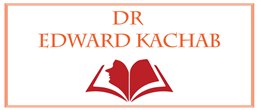CAN INNOVATION ALLEVIATE STRESS AT WORKPLACES?

There are many factors that normally contribute to stress at the workplace including conflict, high work demands, difficult managers, staff or work colleagues, and business performance not meeting expectation.
The digital economy, the vast access to knowledge and the rise of the individual have been contributing to unprecedented business change that continues to expand in complexity and uncertainty.
These challenges can add more stress to senior management, which can filter down and across the organisation, as businesses try to adapt and figure out how to navigate through these uncharted waters.
What is innovation?
Broadly, innovation can be considered as the process of adding value to a product or a service. It’s a process of turning an idea into a commercial product or a service that can potentially open up a new market or expand an existing market.
Integral to innovation is effectively connecting a product or service to the customer. This requires businesses to align their inner map, dialogue and thinking with what is actually occurring in the external environment.
Any misalignment can potentially be catastrophic to business survival, especially during times of uncertainty.
‘Business as usual’ approaches
One way in which misalignment can occur is by businesses continuing to implement ‘business as usual’ approaches using standard processes and traditional models, which were developed to capture value during times of relative certainty.
These approaches can unknowingly be a source of stress to business performance and hence staff and management at all levels of the organisation.
Increasing evidence suggests that familiar management techniques work poorly when applied to the context of uncertainty.
This has been found to equally apply to staff management and engagement inside the workplace and to organisational structures and cultures including leadership styles.
The application of ‘business as usual’ approaches in a changing environment means that business outcomes are less likely to manifest as expected.
The exertion of more effort may be needed, by your staff and management, to even come close to past business performance, which in turn is more time-consuming requiring, even more expenditure of your mental, physical and emotional energy.
Individuals are required to further stretch their capacity and often make personal sacrifices contributing further to elevated stress levels.
Businesses are often reluctant to do or think differently or to implement new ideas due to the risks that may be associated with the change.
How can innovation help?
However, innovation can allow you to deal with uncertainty through the introduction of non-standard methods and approaches for capturing new and emerging value from changing markets.
You can readily change or modify your approach as you gain insights and a better understanding of how it may be working with internal or external customers.
This can only be good for the business and for alleviating stress, that come with ‘business as usual’ approaches in changing times.
 Dr Kachab helps businesses actualise their potential through innovation and programs that elevate leadership effectiveness.
Dr Kachab helps businesses actualise their potential through innovation and programs that elevate leadership effectiveness.
He is a cross-knowledge expert. His practical knowledge spans across executive management, innovation, coaching and leadership, education and training, publishing, medical sciences and holistic wellbeing.
This knowledge diversity gives him a broad perspective and the ability to connect the dots to gain rare insights and for adopting a holistic approach to problem solving.

